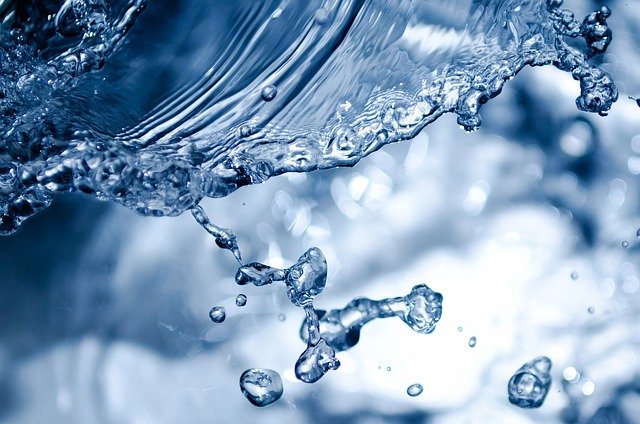Dehydration is something that can have grave effects on the body and stops your kidneys from functioning properly. Your body needs water to survive, and it loses water through dehydration. Severe dehydration which is not properly dealt with early on can lead to kidney stones, kidney failure, and heatstroke. As a result, it’s vital that you’re able to realize the signs that you are getting dehydrated and need to do something.
There are a few guides available online such as Drip Drop’s guide ‘How to Tell If You Are Dehydrated: Common Signs and How ORS Can Help’ and we also wanted to compile all of the information together on how you can help keep yourself hydrated and spot the symptoms that indicate that you are becoming dehydrated.
Common Symptoms of Dehydration to Look Out For
You Urinate a Lot Less Than Usual
One sign of dehydration is urinating a lot less than usual, this is a sign that your body isn’t sufficiently replacing the fluids it has lost.
Your kidney needs electrolytes to function, and dehydration causes an imbalance of electrolytes in the body such as sodium, potassium, chloride, and magnesium. Your kidney needs electrolytes to function, and dehydration causes an imbalance of electrolytes in the body such as sodium, potassium, chloride, and magnesium. A quick way to replenish these lost nutrients is to drink an isotonic sports drink, like Lucozade or Powerade. Increasingly, however, people are choosing to get a hydrating IV from a clinic in their local area. These clinics offer a quick and safe way to deliver fluids straight to the bloodstream, facilitating faster rehydration. If you have one of these clinics in your area, they can be the perfect way to rehydrate after a long day at work or at the gym.
Strong-smelling Dark Colored Urine
One sign you are dehydrated can be you developing a urinary tract infection (UTI). If your urine is smelling odd and is a dark cloudy color, you may well have a urinary tract infection. In this case, you must drink plenty of water and visit your registered doctor’s office to get your urine tested and some antibiotics if you do have an infection.
Feeling Very Thirsty
A clear sign that you need to consume a lot more water is constantly feeling thirsty and dry in your throat. Have some water to quench your thirst and stay hydrated.
Doctors recommend men should consume around 3.7 liters of fluids per day, and women 2.7 liters per day.
Low Blood Pressure
Dehydration can cause your blood pressure to drop considerably due to a decrease in blood volume. Low blood pressure is dangerous because it can cause dizziness, drowsiness, weakness in your limbs, and it even cause you to faint or fall in some cases. Having low blood pressure means your body is being deprived of the oxygen it needs.
Getting Headaches and Migraines Regularly and Feeling Light-Headed
Dehydration can easily give you painful headaches and migraines which are not pleasant at all. You will find it hard to focus and perform well in exams or at work if you can’t concentrate due to constant headaches and migraines. A clear sign that you are dehydrated, and your body is crying out for more fluids is having throbbing headaches and migraines.
The sensation of feeling light-headed and dizzy is certainly not a nice thing to have to deal with very often. When dehydrated, you may stumble around and struggle to walk properly in a straight line. Seniors fainting or falling over as a result of their body feeling weak due to dehydration is dangerous; when they fall, they can easily hit their head on something that will do them a lot of damage.
Drowsiness and Feeling Tired
Being dehydrated can make people drowsy and exhausted and prone to falling asleep at random moments of the day. This drowsiness and feeling of fatigue are mostly due to the body reacting to the fall in blood pressure that comes with dehydration. The body tries to fight against dehydration, but it lacks the energy the human body needs to perform well physically and concentrate properly in everyday life.
Fatigue can really affect your performance if you are keen on doing sports in your spare time or are a serious athlete. In addition, being fatigued all the time does not good look in the workplace. Your employer will want you to have plenty of energy, charisma, fresh ideas, and be sharp-minded and on the ball. Suffering from fatigue and always being drowsy due to dehydration is something that can cause you problems in the long term. As well as drinking plenty of fluids, to combat fatigue and drowsiness it is important to also get plenty of hours of sleep and avoid spending all of your time indoors sat motionless looking at screens.
Dry Mouth, Lips, and Eyes
Getting dryness around the mouth, lips, and eyes is a tell-tale sign that the body is feeling dehydrated. To get rid of this dryness, apply some sensitive soft cream to your skin to provide it with some moisture, or simply make sure that you consume more water and fluids.
Confusion
Sadly, dehydration can cause anyone to become confused, unsteady on their feet, and start muddling up their sentences. For elderly people, being confused and not knowing what is happening all of the time can be disconcerting and distressing.
Consider whether you are experiencing any of the symptoms mentioned to help you to recognize when you are dehydrated, and then think about how you are going to hydrate yourself.










No comments